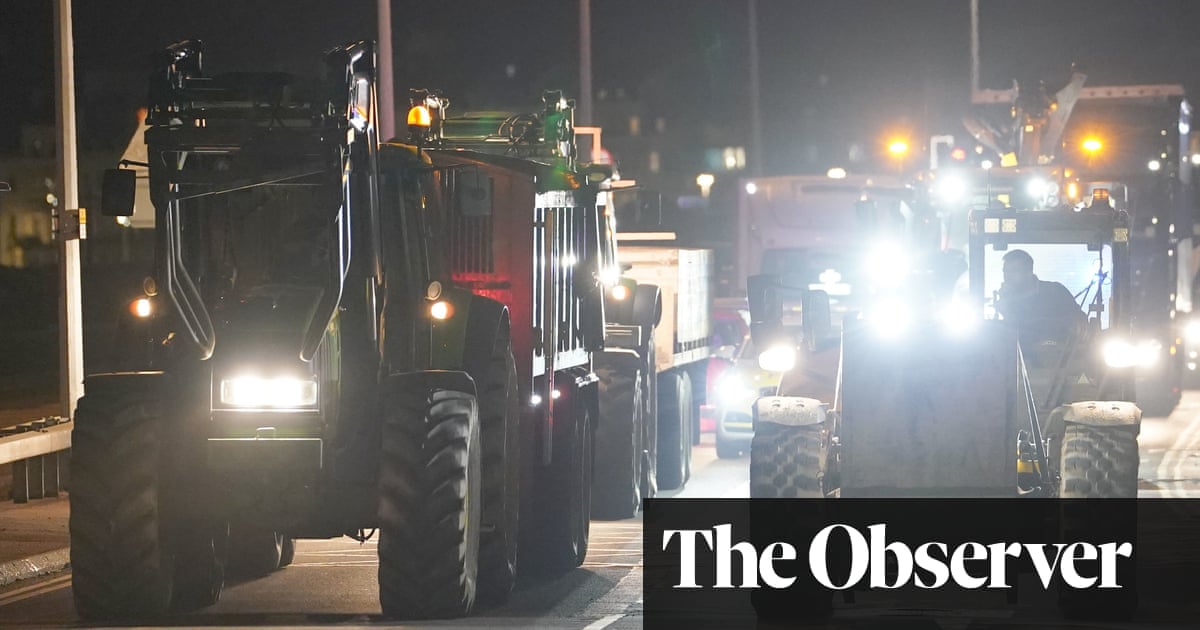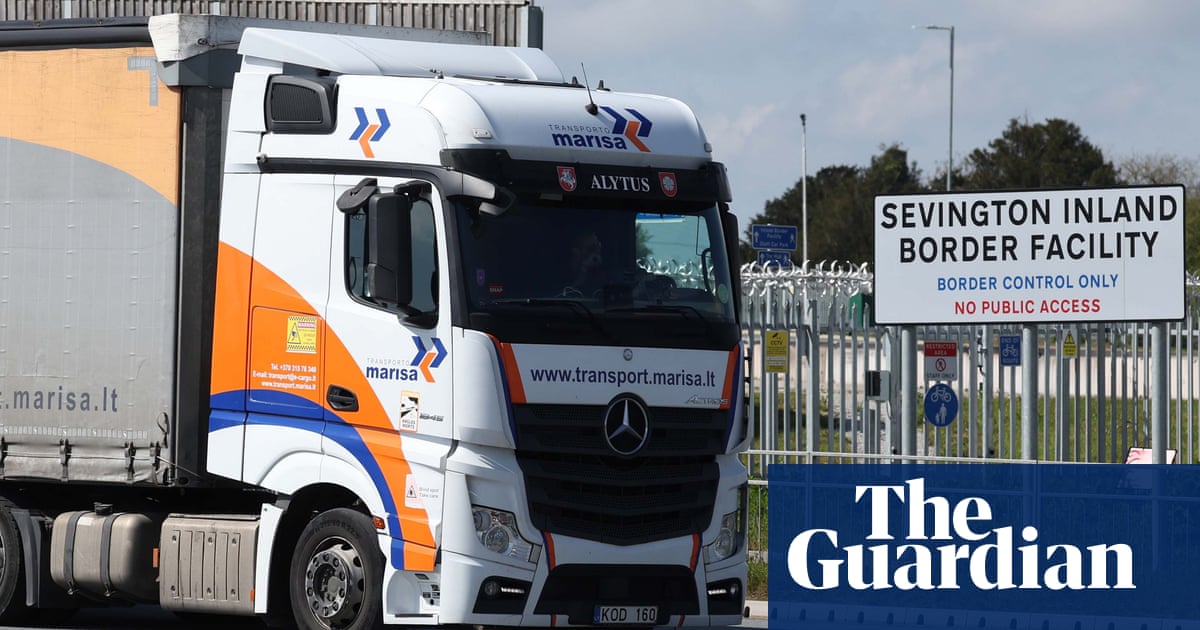UK farmers vow to mount more blockades over cheap post-Brexit imports | Farming


Farmers say there will be further French-style blockades following a slow tractor protest at Dover against low supermarket prices and cheap food imports from post-Brexit trade deals.
Around 40 tractors and other farm vehicles blocked roads around the Kent port for several hours on Friday evening by driving slowly and carrying signs with slogans such as “No More Cheap Imports”.
The Kent farmers are meeting again this week to discuss further action, and they may be joined by other campaigns fuelled by farmers’ simmering discontent.
Last October farmers in Somerset attempted to block a Morrisons distribution centre in Bridgwater under a banner that said “Proud to Farm”. Then last week about 3,000 farmers gathered in Carmarthen, Wales, to protest, with some carrying a mock coffin with a plaque reading “In memory of Welsh farming”.
Other campaigns have started up with similar themes, including Get Fair About Farming, which was set up last year by the founder of organic vegetable-box company Riverford, Guy Singh-Watson, with a petition debated in parliament last month.
Andrew Gibson, who helped organise the Dover protest with his brother Jeff, said: “We’ve had support from all round the country. There will be other groups like us and they will make their presence felt – around the docks, around supermarket distribution centres.”
The Kent farmers took inspiration from their counterparts in France who blocked motorways into Paris for more than a week until the government promised extra funds, looser regulation and protection against unfair competition.
“I don’t think we’re getting into London, because we’d get shooed out pretty quickly, but I think we’d like to do that,” Gibson said.
The protest on Friday afternoon was spontaneous – it had only been organised hours earlier, and the response so far has been “brilliant”, Gibson said.
Gibson cited tariff-free wheat from Ukraine and cheap lamb from New Zealand among the reasons for farmers protesting. His brother Jeff told Radio 4’s Today programme: “Brexit has made things more difficult. Exporting things from the UK is much more difficult, and importing into the UK doesn’t seem to have changed.”
Sustain, the food campaigners, warned in 2022 that UK farmers made far less than 1p profit from food they produce. A loaf of bread was worth 0.09p profit for a cereal farmer while a £2.50 block of cheddar was worth less than a penny for dairy farmers.
Since then trade deals with Australia and New Zealand have come into force. Andrew Gibson said he had tried to buy British lamb in his local supermarket and found none.
“The ethics are just appalling,” he said. “How you get a leg of lamb from New Zealand, the other side of the world, and sell that for £15 or £20 – it’s mind-boggling.
“We’re getting a lot of produce from around the world that would be illegal to grow in this country,” he added. “We produce the best stuff to the highest standard. We just want a level playing field.”
National Farmers’ Union (NFU) president Minette Batters said that years of “unsustainably high production costs and crop losses because of extreme weather” had put farmers under pressure. She said that public support for farmers was “invaluable”. “We do not take this support or its influence for granted, and it’s why protests should always be a last resort,” she said.
A government spokesperson said that British farming was “at the heart of British trade”.
“We’ve maintained the £2.4bn annual farming budget, which supports farmers to produce food profitably and sustainably, while protecting nature and helping to meet our net zero ambitions. Our new schemes offer something for every type of farm, and a crucial part of their development has been to listen to farmers’ feedback.
“We are also looking at ways to further improve fairness in the supply chain and support British farmers and growers, as well as ensuring customers have access to high-quality fresh British products.”
Source link




